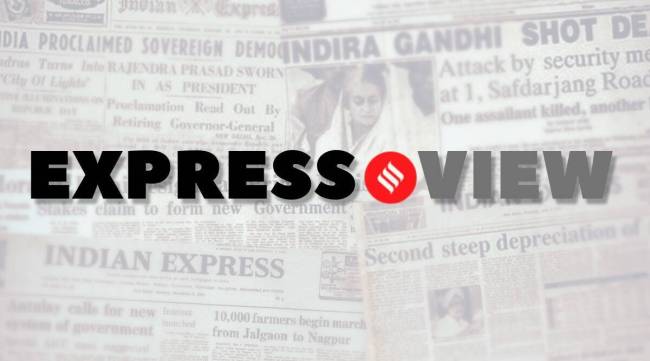Opinion Had it not been for Court, justice would be elusive for Gujarat 2002. That’s why its latest order, its use by police, is disturbing
The cases stemming from Gujarat 2002 raise serious questions about a range of abdications by institutions and actors.
 On Friday, the SC upheld the SIT’s clean chit in the 2002 riots to the then Gujarat government led by Chief Minister Narendra Modi, discarding allegations of a larger conspiracy by high state functionaries.
On Friday, the SC upheld the SIT’s clean chit in the 2002 riots to the then Gujarat government led by Chief Minister Narendra Modi, discarding allegations of a larger conspiracy by high state functionaries. In the long, tortuous and still unfolding process of justice after the communal violence in Gujarat 2002, the Supreme Court of India has played a commendable role. Its several interventions have ensured that the process stays on course, that it was insulated from pressure by the powerful, and that victims and survivors could hope for a fair and just closure. This is why the two arrests on Saturday, of activist Teesta Setalvad and former Gujarat DGP RB Sreekumar, are disquieting — the FIR is based on extensive quotes from the SC verdict and its annexures the day before. On Friday, the SC upheld the SIT’s clean chit in the 2002 riots to the then Gujarat government led by Chief Minister Narendra Modi, discarding allegations of a larger conspiracy by high state functionaries. The collapse of that particular case was, arguably, foretold — connecting the dots right up to the chief minister’s office was a tall order to begin with, and the case may have been propelled more by the anguish of those devastated by the violence, less by evidence that could hold up in a court of law. In the same order, however, the Court went a worrying step further. Its verdict said, and the FIR lodged the next day faithfully quoted: “At the end of the day, it appears to us that a coalesced effort of disgruntled officials of the state of Gujarat along with others was to create sensation …to keep the pot boiling, obviously for ulterior design… all those involved in such abuse of process, need to be in the dock and proceeded with in accordance with law”. The day after, the question is: Surely the court would not countenance a witch-hunt that borrows its lines from the court?
The law must take its course on Sreekumar and Setalvad. But there is a problem with an FIR that draws so heavily upon what the court says, and a court verdict that lends itself to such immediate police action against those standing with the petitioners in cases of 2002. What the court said on Friday and the police taking its cue from it on Saturday also appears to turn on its head the story so far — after all, it was the same court that, down the years, took a number of unprecedented steps to ensure justice for 2002. The SC stayed the trials in certain cases in response to allegations that there had been serious lapses in investigation. It set up an SIT and supervised designated fast track courts for hearing sensitive cases. It ensured that cases were shifted outside Gujarat so that justice could be done. Its interventions resulted in the reopening of nearly 2,000 post-Godhra riots cases. The SC, in fact, became the centrepiece of a larger effort in which individual activists, NGOs and the NHRC, among others, contributed towards bringing justice closer to victims and survivors of the communal violence that took place in Gujarat a little over two decades ago.
The cases stemming from Gujarat 2002 raise serious questions about a range of abdications by institutions and actors. The collapse of one case should not become the pretext for a sweeping indictment of the whole struggle for justice and accountability. The SC must also reflect on whether it behoves its status and role as the wise custodian of constitutional processes and values to be seen to be turning on those who were stricken by the violence and knocked on its doors, even if, as it turns out in this particular case, their plea failed to hold.





